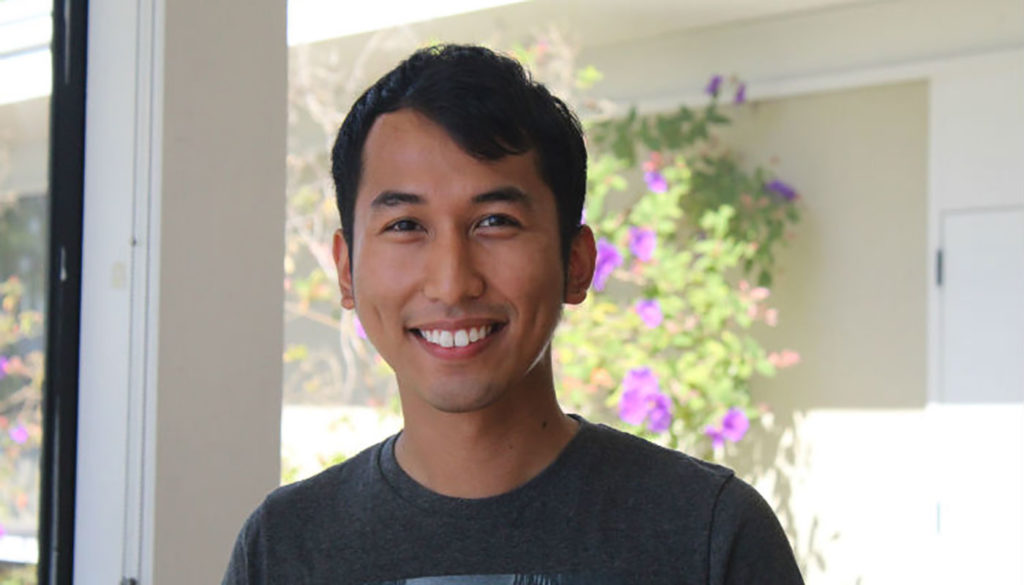Gideon Ubaldo walks out with one of the children for a water break while the rest of the class continues to dance. This child has been having a hard time with learning the new dance moves, and is discouraged. Ubaldo speaks words of encouragement and continues to talk and walk with the child. Ubaldo has been a part of E-Dance for a year and a half now and is comfortable playing, dancing, and teaching the kids at their own pace. As an E-Dance teacher, Ubaldo’s goal is to ensure that each child is included and has their own victory, whatever that may be. Towards the end of the class, the child Ubaldo is working with has a victory. The child comes to the front of the class and teaches a dance move from the popular video game, Fortnite. Although the child did not always feel comfortable participating in the activities, Ubaldo’s companionship helped them to feel that they were still a part of of the E-Dance community. This is just one example of the inclusive stories that Ubaldo has been a part of in E-Dance. E-Dance is Ubaldo’s first experience with exceptional environments, where people with and without disabilities are all included, and his first time teaching kids. He has found it to be different from what he expected.
“[Growing up,] I never really was around people with different needs, … being here now and not just learning but teaching is big … I was scared … It was more than what I thought it was … It was diverse in a way I never imagined … fun too. ”
At first, Ubaldo was worried about performing well as a teacher. However, after being a volunteer for a while, it changed his perspective:
“It’s not all giving but also just being in a community. I think that’s a big part … we’re all in this together.”
E-Dance gave him a space to understand that life isn’t all about what we have to give as individuals, but that it’s also about the beauty of being together. According to Stanford psychology professor Hazel Rose Markus and graduate student Alyssa Fu’s study, “In the Land of the Free, Interdependent Action Undermines Motivation”, American culture currently values independence over interdependence (relying on one another and appreciating each others’ influence). As a result, people are more easily motivated by things that will benefit themselves as opposed to what will benefit their communities. E-Dance has allowed Ubaldo to learn the value of inclusive, interdependent thinking. Of course, both independent and interdependent thinking have their benefits. However, in a society where independence is valued to the point of people being less responsive to the needs of others unless it directly benefits themselves, interdependent and inclusive spaces are especially precious. The inclusive environment of E-Dance has lead Ubaldo to evaluate how the way he treats himself affects the way he treats others.
“I can be hard on myself … [thinking], ‘I could have done this better, could have done that better. I could have gotten better grades, I could have made friends with these people’ … I gotta be more positive because if I’m hard on myself, I’m gonna share that to other people.”
Ubaldo’s fears connect to the constant pressure Americans feel to improve themselves and become successful independently. Since volunteering at E-Dance, his perspective has shifted to becoming uniquely “others”-centered. Ubaldo could try volunteering at other places closer to home; he lives over half an hour away from E-Dance, without traffic. Ubaldo clears out two hours or more of his Saturday mornings so that he can volunteer with E-Dance. He values the inclusive environment that E-Dance creates, and takes what he learns there with him to college and work. Ubaldo says that E-Dance has opened his eyes to the fact that people are diverse: “You never know what people are going through, not until you get included [in their lives].” He will continue to volunteer at E-Dance, learning more about inclusion, diversity, and the value of community.




